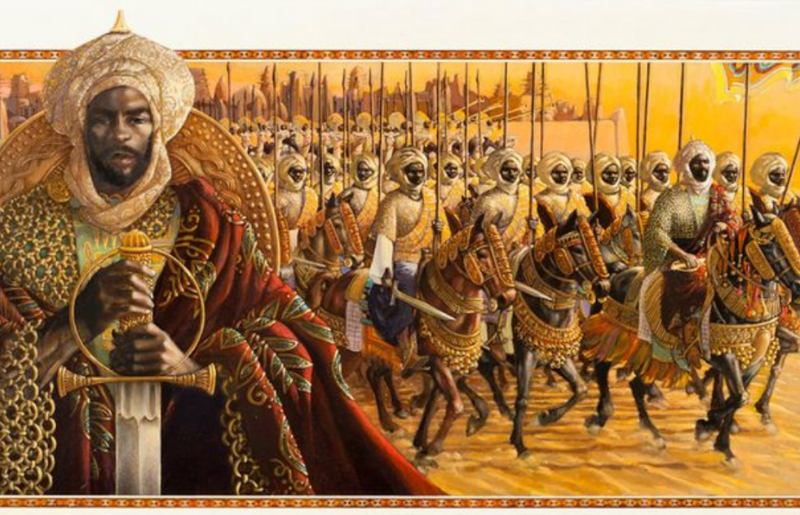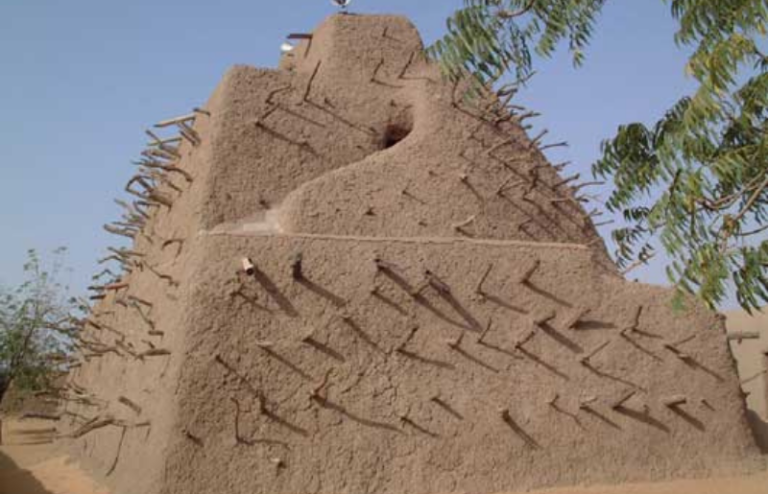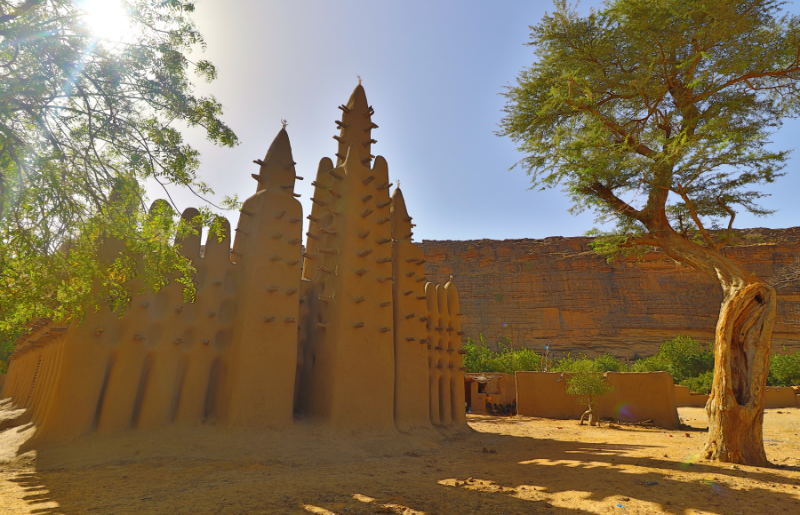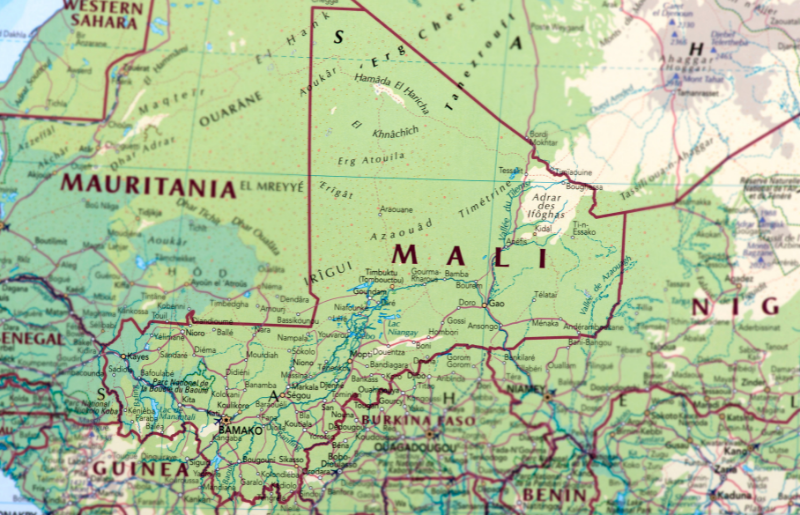Last week in my second post for Black History Month, I looked at the Mali Empire. This week for my third post, I will look at the Songhai Empire.
The Rise of the Songhai Empire
The Songhai Empire rose to power in the 15th century after the Mali Empire weakened and eventually crumbled. The Empire lasted for two centuries and was West Africa’s most powerful Empire. Of the three major empires, it was by far the largest, and that is no surprise since it would have inherited the territories of the Ghana and Mali Empires. Its expanse covered 1.4M sq km, which is one-quarter the size of the continent of Europe. Its territories included Niger, Mali, Mauritania, Senegal, Nigeria, Guinea, Gambia, South Algeria, Burkina-Faso, and the Ivory Coast.
Songhai’s origins date back to the mid 800s when small groups of farmers and fishermen united and created the small Kingdom. More small communities banded together and joined the growing Kingdom, which eventually became an Empire as time passed. The city of Gao was founded in 800 AD by the Songhai people. It was later established as the capital city in the 11th century. The Mali Empire, recognizing Gao as an important trading center, conquered the city in 1325.
Sonni Ali – Great Ruler of the Songhai Empire
The Songhai Empire would not regain control of Gao for another 50 years under the leadership of Sonni Ali. He was the leader that led the Songhai Empire to prominence at the fall of the Mali Empire. He ruled from 1464 to 1492. Like the Ghana and Mali Empires, the Songhai Empire had control of the lucrative Trans-Saharan Trade Route. Like the Mali Empire, the Songhai Empire used the Niger River for trade. Sonni Ali was also able to take control of Timbuktu, Djenne, and several other cities and provinces of the Mali Empire. Djenne proved his most formidable challenge; it took him seven years to conquer the city. He was successful only because he lay siege to the city and forced the citizens to surrender.

Sonni Ali wasn’t the first ruler of the Songhai Empire, but he was considered the first great ruler. He was described as very warlike and thought to be the Empire’s most formidable military strategist and conqueror. He was not a devout Muslim as Mansa Musa was. He mixed Islam with traditional regional customs, which caused a rift between him and some of the rulers of the provinces who were devout Muslims. Sonni Ali surpassed the Mali Empire in size, prosperity, and influence. After his death, his successor and son, Sonni Baru, had one year of rule before Muhammed Ture, also known as Askia the Great, overthrew him. He ruled from1493 to 1528. Askia served as a general to Ali and was instrumental in establishing reform – political and economic – throughout the Empire.
Askia, the Great
Askia was a devout Muslim and, like Mansa Musa, made a pilgrimage to Mecca. In fact, Askia restored Islam in the Songhai Empire. He divided the Empire into five provinces with a governor, and all governors and leaders were Muslims. Even though there was still a mixture of Islam and local customs, he instituted Sharia law across the Empire. Like Mansa Musa, Askia supported higher learning, extended Sankore University in Timbuktu, and built several schools throughout Songhai. Askia strengthened relations with Muslims because he allowed the movement of ambassadors, scholars, and skilled workers from Arabia, Egypt, Morocco, and Muslim Spain.
Askia was said to be organized. He had a permanent army with generals and admirals that led convoys of war canoes. His government had ministers for finance, justice, agriculture, water, and forests. Moors held land tenure and provided troops on camelbacks. Like the Ghana and Mali Empire, the Songhai Empire set up a taxation system under Askia. He had canals built to boost food production, which would provide another avenue for trade. Under Askia, weights and measures were introduced, and inspectors were appointed at trading centers.
The Fall of the Songhai Empire
Askia’s sons revolted against him and made his son Musa the new king of Songhai in 1528. His rule was short, and his brother Askia Monzo Musa overthrew him in 1531. For the next 60 years, the Kingdom was passed down to Askia’s sons and grandsons. The constant civil war and Askia’s loss of power led to the Empire’s decline. In 1591, the Morrocans invaded Songhai in what is known as the battle of Tondibi. The Moroccans ultimately defeated the Songhai Army because they used English cannons and arquebuses as weapons. The Moroccans were able to seize Gao, Timbuktu and take control the trans-Saharan trade route. It was illegal for one Muslim state to invade another, but the Morrocans were nearly bankrupt after fighting off the Portuguese. The Moroccans needed new resources for their Kingdom, and they thought the Songhai Empire would provide those resources.
Several Empires came after the Songhai Empire, but none were as great. The Moroccans were not able to take complete control of the Songhai Empire and eventually relinquished power. The Empire was ultimately broken into several smaller kingdoms and the Songhai moved to the only remaining province of Dendi.
Conclusion
The common thread among the three Empires was their location, the products they traded, their control of the lucrative Trans-Saharan Trade route, and their adoption of Islam. Like the Mali Empire, the Songhai Empire conducted lots of trade via waterways because of its access to the Niger River. It’s important to note that these Empires ran simultaneously at times, but based on control of resources, they rose to prominence. They all eventually dissolved, but there are still landmarks that stand today that represent that part of history.

By 1471, the Portuguese started trading on the Trans-Saharan trade route. They traded European products for West African products and enslaved people. The demand for enslaved people was high, and that market became the main focus. At first, Africans were captured in raids from coastal communities in Nigeria, but as the demand grew for enslaved Africans, the Portuguese relied on traders, local rulers, and the military for assistance with capturing more people. In exchange, they were given guns, horses, and other products.
As Europe colonized the Caribbean and America, the market for enslaved Africans grew and the trans-Atlantic slave trade became the main focus. The Trans-Saharan Trade route markets became slave-raiding stations, and the rest is part of History but not the whole story.
Resources
- https://www.britannica.com/place/Songhai-empire
- https://www.blackpast.org/global-african-history/songhai-empire-ca-1375-1591/
- https://www.blackpast.org/global-african-history/toure-muhammad-c-1442-1538/
- https://www.peaster.net/cms/lib/TX01000798/Centricity/Domain/359/Ch.1Sec.3.pdf
- https://thothios.com/c-1200-to-c-1450/unit-2-networks-of-exchange/west-african-empires-and-trans-saharan-trade/
- https://wasscehistorytextbook.com/2-trans-saharan-trade-origins-organization-and-effects-in-the-development-of-west-africa/
- https://www.sahistory.org.za/article/songhai-african-empire-15-16th-century
- https://historyofyesterday.com/the-five-greatest-african-empires-and-kingdoms-that-you-may-have-never-heard-of-931b60b4d9ff
- https://blog.rhinoafrica.com/2018/03/27/9-ancient-african-kingdoms/
- https://www.bu.edu/africa/outreach/teachingresources/history/kingdoms/
- https://www.britannica.com/topic/Askia-dynasty
- https://en.wikipedia.org/wiki/Battle_of_Tondibi
- https://en.wikipedia.org/wiki/Saadi_Sultanate
- https://www.studentsofhistory.com/the-songhai-empire



That’s so interesting, i will read the previous two articles also.
Much appreciated.
Really enjoyed reading your post about the Songhai Empire, was like a little history lesson for me as I did not learn about the empire when I was young
Thank you. I enjoyed researching on it; there is so much to learn.
Reading this makes me realise I didn’t actually learn all that much in history classes, very informative. Sounds like Askia achieved quite a bit during his life x
Yea I didn’t learn much of this either in school.
Knowledgeable post! Thank you for sharing so much information. I love learning and knowing new things, especially about history.
Thank you.
It sounds like Askia the Great achieved quite a bit during his life. I’ve learnt something new today.
Thank you for reading. Yes, Askia did. He was not from noble blood, so it was a bit of a stretch for him to be on the throne, but he rose to the occasion.
This was very informative and thank you for providing the history so we can become more knowledgable and aware!!
Thank you. I learned a lot during the process.